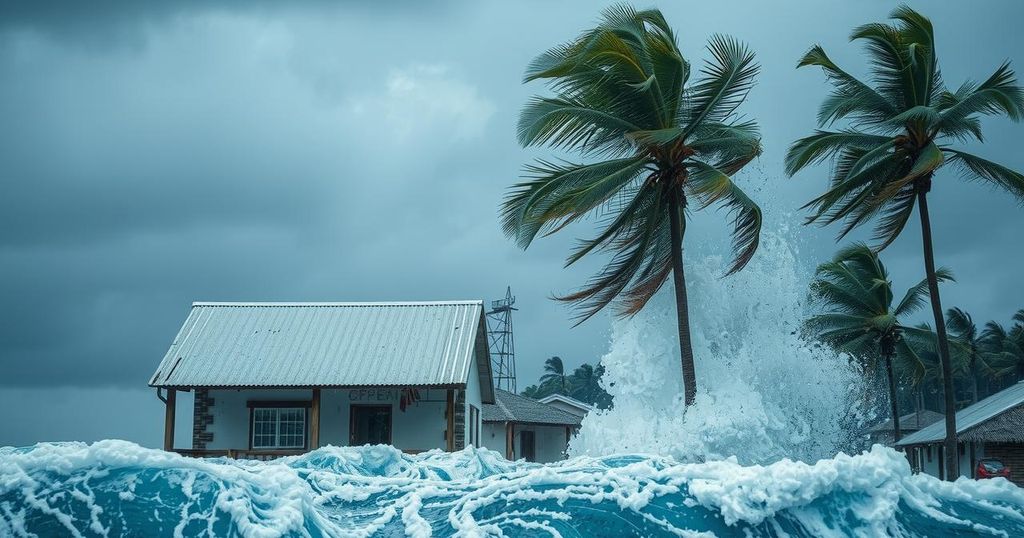Mozambique Prepares for Tropical Cyclone Dikeledi as Impact Looms

Mozambique is under threat from Tropical Cyclone Dikeledi, projected to impact Nampula with heavy rains and strong winds beginning January 14, 2025. Approximately 255,310 people may be affected, with government proactive measures initiated in high-risk districts. Humanitarian partners remain on alert to provide assistance as the local capacity faces strain due to previous cyclone hits. Flooding and infrastructure damage are significant concerns.
As of January 13, 2025, Mozambique is currently grappling with the effects of Tropical Cyclone Dikeledi, which has intensified after initially being a tropical storm. This system is forecast to traverse across Nampula, where it will weaken as it moves over land; however, Nampula’s coastal areas are facing heavy rainfall, with projections of up to 200 millimeters within a 24-hour period and winds reaching 120 kilometers per hour.
The National Institute for Disaster Management (INGD) estimates that approximately 255,310 individuals could be affected by this cyclone, with 98,000 being located in areas deemed high-risk. To mitigate potential damage, INGD has put anticipatory action protocols into effect in districts like Angoche and Mongicual, initiating preparedness measures such as the distribution of advisories and preventive evacuations. Humanitarian entities are on standby, ready to assist, although resources are currently stretched due to the recent cyclone activity in the region.
The impending rain and wind are expected to pose significant flooding risks, particularly along river basins and roadways, as well as threaten critical infrastructure such as educational and health facilities. The National Meteorology Institute (INAM) has confirmed the severe weather conditions affecting the provinces of Nampula, Cabo Delgado, and Zambezia, particularly near the landfall zone, with destructive winds causing hazardous maritime conditions.
In January 2025, Mozambique faces a significant weather event due to the re-intensification of Tropical Storm Dikeledi into a tropical cyclone. This cyclone is moving towards regions heavily populated by vulnerable communities, with high expectations of rainfall and destructive winds expected. The state has activated emergency measures in response to the cyclone’s anticipated impact, illustrating the country’s ongoing struggle with successive weather crises that threaten both lives and infrastructure. The National Institute for Disaster Management has highlighted the urgent need for disaster preparedness and response, as populations in affected regions are at risk of displacement, flooding, and infrastructure damage. The situation is critical, given that Dikeledi follows closely upon the impacts of Cyclone Chido, indicating an increasing frequency of severe weather events in the region. Mozambique’s vulnerabilities to cyclonic disturbances necessitate collaborative actions among governmental agencies, local communities, and international humanitarian partners to provide timely assistance and ensure community safety.
Tropical Cyclone Dikeledi presents a significant risk to Mozambique, with projections indicating over a quarter of a million individuals affected, particularly in high-risk areas. As the storm approaches, the government and humanitarian organizations are mobilizing efforts to mitigate the impending effects. Both the National Meteorology Institute and the National Institute for Disaster Management emphasize the urgency of preparedness in light of expected heavy rainfall and destructive winds. The situation highlights Mozambique’s vulnerabilities to cyclical weather challenges, necessitating ongoing vigilance and support.
Original Source: reliefweb.int






